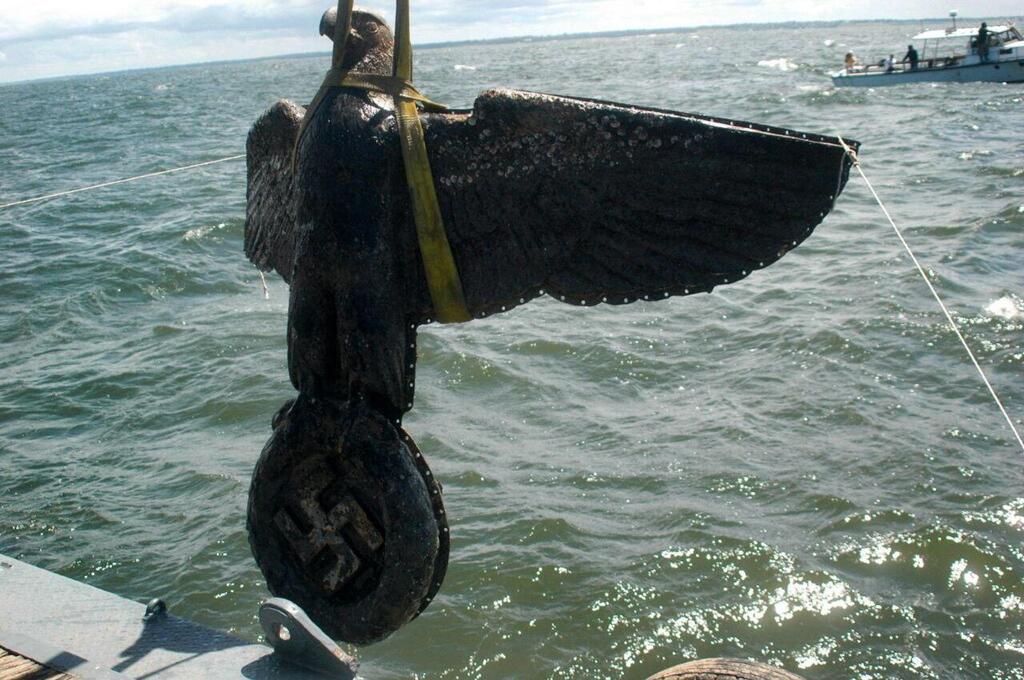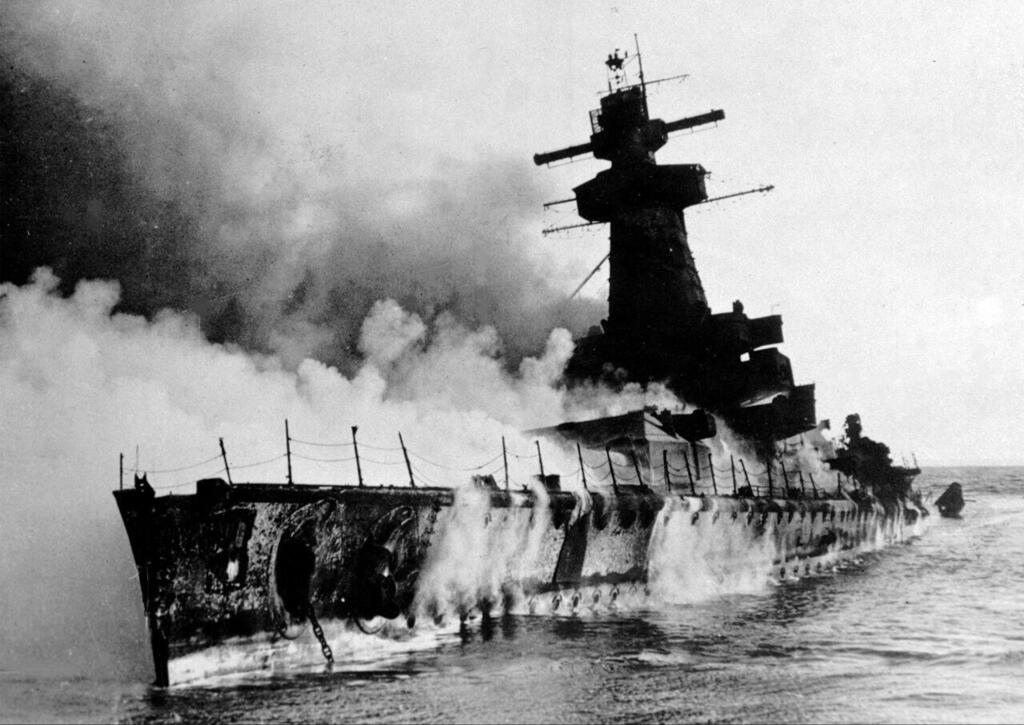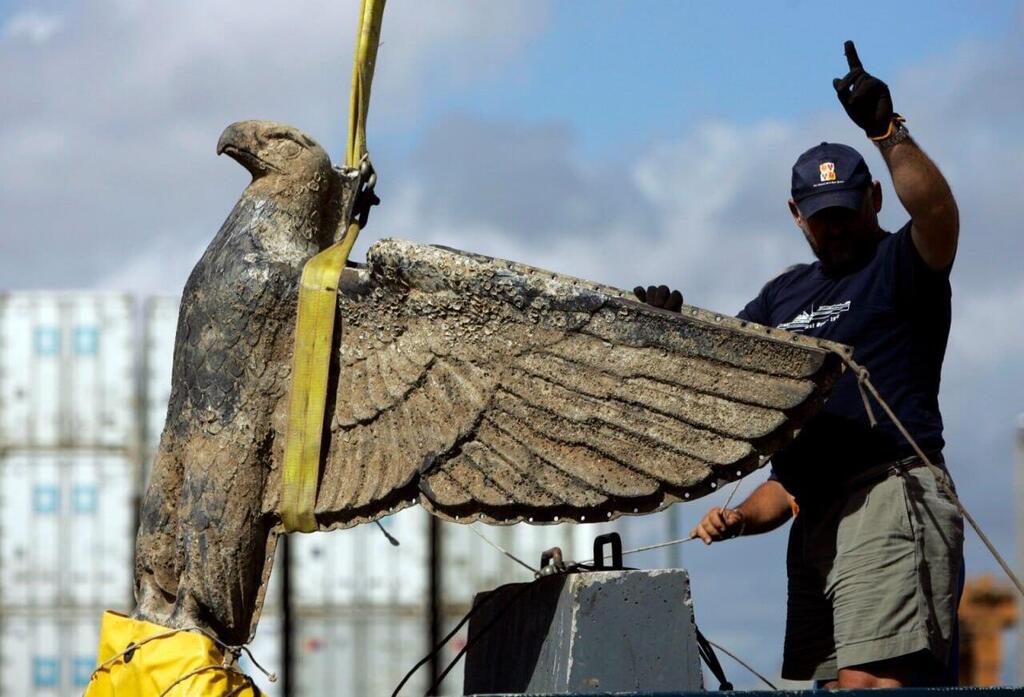Getting your Trinity Audio player ready...
A colossal bronze eagle, standing at nearly nine feet tall and weighing almost 800 pounds, bearing a swastika at its center, adorned the Nazi flagship vessel named Graf Spee. Now, 84 years since the formidable warship was launched by Nazi Germany, it is stirring up a heated debate in Uruguay.
More stories:
The ship, dispatched to the South Atlantic in 1939 to target British vessels, was discovered by the British in the River Plate, which separates Uruguay and Argentina.
Realizing there was no way out, the captain of the German cruiser made the decision to scuttle the ship and subsequently take his own life.
In 2006, 67 years after its sinking, a Uruguayan private company led an expedition to locate the infamous bronze eagle. Although those involved in retrieving the artifact, including businessman Alfredo Achával, wished to sell it at a public auction, Uruguayan authorities acted to prevent this, fearing it might attract Nazi sympathizers.
The matter made its way to court in June 2019 when Judge Gabriela Rodríguez Marchelli ordered the Uruguayan government to sell the artwork and share the profits with the businessmen responsible for its recovery.
Nonetheless, a recent court decision established that the artwork is national property. As a result, Uruguayan President Luis Lacalle Pou declared his intent to dismantle the Nazi eagle and repurpose it as a symbol of peace, to be exhibited in the town of Punta del Este.
The president informed Israeli Ambassador Yoad Magen, that the new dove sculpture would be presented in a large open-air museum outside the city, aiming to turn a symbol of hatred and violence into a symbol of peace.
Nevertheless, the president's proposal has sparked controversy and drew sharp criticism from both the left and right. Senator Manini Ríos, the leader of the right-wing party Cabildo Abierto, which is part of the coalition, has declared his intention to introduce legislation to prevent the dismantling of the eagle.
Another political figure, presidential candidate Yamandú Orsi, expressed disappointment that the president chose to focus on peripheral issues while Uruguay grapples with an ongoing water crisis.
Following the furor, the Uruguayan president announced that he is reconsidering his decision. "Regrettably, while I still believe it is a worthwhile idea, it is the duty of the president to listen and represent. After consulting with the artist, we have made the difficult decision to abandon the plan. It is evident that there is a significant majority opposing this decision, and if our aim is to promote peace, fostering unity should be our first priority," acknowledged the president.
In a message addressed to the Foreign Ministry, Israeli Ambassador Yoad Magen stated, "The issue has concerned the Uruguayan government since 2006 when the symbol was retrieved from the sea. The government is unwilling to allow the rights-holding company to sell one of the prominent symbols of the Nazis to parties that would turn it into a site of pilgrimage.
Both the Jewish community and we are opposed to it. According to a ruling by the Uruguayan court, the government can refuse the sale in exchange for compensation of around $5 million to the rights holders."
The ambassador noted that three years ago there was an attempt to reach out to German and Jewish American entities, but they did not express interest in purchasing the sculpture, which is valued at $26 million if sold at a public auction.
Yad Vashem Holocaust Museum's stance on the issue is to refrain from engaging in any transactions involving items linked to Nazism or any form of indirect endorsement of such trade. Any monetary transfer associated with the item, even if labeled as "compensation," is considered a commercial transaction.
Transferring the item to any party in Berlin (or any German entity) would be strongly discouraged, especially when it necessitates coordination with the leadership of the Jewish community.





